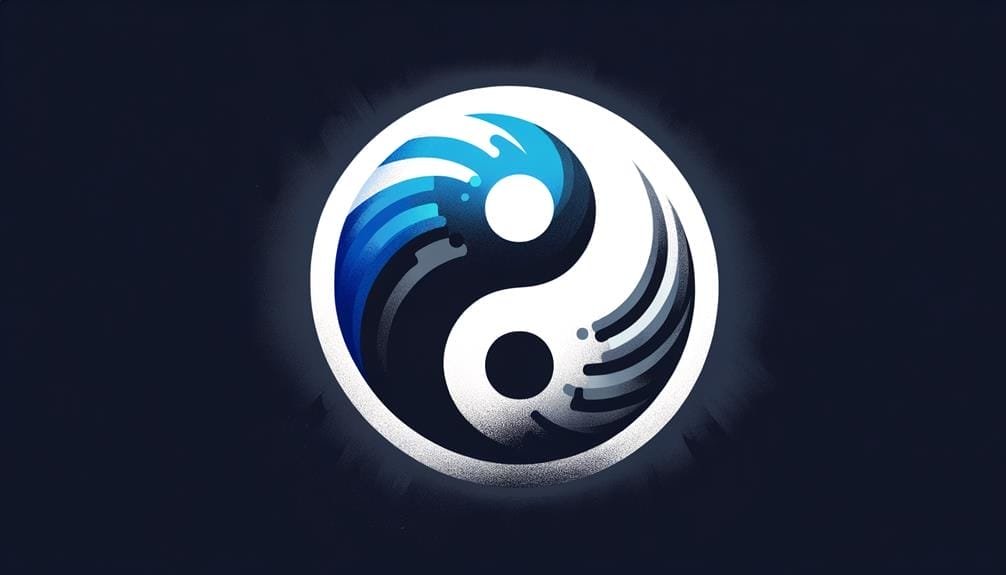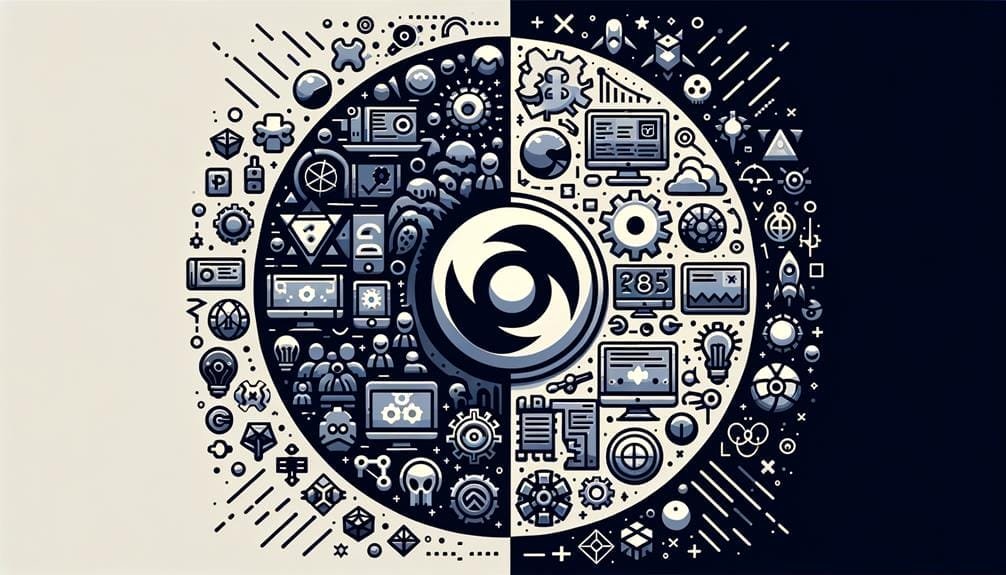Our Newsletter
Sign up for our e-mail newsletter and stay informed for what’s next on the horizon.
In the expansive cosmos of game development, two behemoth forces contend for dominance: Unity and Unreal Engine.
We’ve all been impressed by the remarkable outputs they can generate, but which one truly wears the crown? Is it Unity with its intuitive interface, ideal for novices and mobile game development? Or does Unreal Engine’s superior graphics and powerful features for AAA games snatch the title?
The response isn’t as straightforward as you might surmise. So let’s dig deeper and unearth what hidden gems these platforms offer us in the sphere of game development.
Ultimately, choosing between Unity and Unreal Engine isn’t a straightforward decision. It depends on your game design aspirations, skills, and project requirements.
Both platforms offer extensive capabilities, with Unity being superior in ease of use and Unreal offering top-tier visuals. However, remember, the equipment is subordinate to the craftsperson creating the masterpiece.
Therefore, choose with thoughtfulness, get ready to put in the effort, and allow your creativity to take flight!
Let’s introduce the premier game development platform, Unity Engine, an exceptional tool created by Unity Technologies in 2005, acclaimed for its real-time 3D gameplay creation capabilities. Unity’s strength lies in its wide-ranging usability, catering to developers of all proficiency levels, particularly novices.
Unity utilizes the power of the C# programming language, recognized for its simplicity and quick learning curve, consequently speeding up the development process. This accessible coding language provides us, the developers, the opportunity to concentrate more on artistic aspects and less on grappling with intricate code.
Unity’s primary advantage is its cross-platform compatibility. It enables us to deploy games across various platforms, from desktops to gaming consoles, smartphones, and even VR devices. This flexibility frees us from the limitations of platform-specific development.
Apart from traditional gaming applications, Unity excels in creating both 2D and 3D games, as well as VR experiences. Its versatility is a testament to Unity’s adaptability in a constantly changing gaming landscape.
Shifting our attention to Unreal Engine, a potent platform created by Epic Games in 1998, we observe an engine celebrated for its capabilities in simulations, video editing, sound, and animations. Noted for crafting AAA-quality games, Unreal Engine provides photorealistic graphics immediately, making it a top pick for developers seeking advanced graphic features.
With its open-source nature, Unreal Engine presents impressive scalability and customization, attractive to developers who desire freedom. From small indie developers to large studios, the potential to mold the engine to their explicit needs is a substantial draw.
Consider the following points to further understand Unreal Engine:

Focusing on Unity, we observe a platform famed for its user-friendly interface, exceptional support for mobile and 2D game development, and accessibility for emerging indie developers, though it does exhibit some drawbacks in performance and advanced features.
A key strength of Unity is its user-centric interface. It’s constructed for ease of use, even for those unfamiliar with game development. This is further augmented by comprehensive documentation and tutorials, simplifying the learning process and problem-solving for users.
Another substantial advantage of Unity is its robust support for mobile and 2D game development. In fact, it’s frequently the preferred choice for indie developers, partly because of its cost-effectiveness. Unity is free for projects yielding less than $100,000 per year, further broadening the field of game development.
Nonetheless, Unity is not devoid of its weak points. Its performance can be less robust compared to more niche engines and it necessitates a Unity Enterprise subscription for access to read-only source code. This can restrict some advanced features, especially for developers aiming to push the limits of what’s achievable.
| Strengths | Weaknesses | Cost |
|---|---|---|
| User-friendly interface | Less robust performance | Free for projects < $100k |
| Comprehensive documentation and tutorials | Requirement for Enterprise subscription for read-only source code | Enterprise subscription necessary for larger projects |
| Robust support for mobile and 2D game development | ||
| Accessibility for indie developers |
Even though Unity is a strong choice for budding developers, Unreal Engine emerges as a powerful opponent, featuring high-definition visuals, top-tier rendering abilities, and a feature-rich toolkit for multiplayer, AI, and VR projects. This engine’s sophisticated toolkit and superior visual effects enable developers to produce AAA-quality games that can compete with those produced by established studios.
As we explore Unreal Engine, we identify three main benefits:
Nonetheless, Unreal Engine’s royalty-based pricing structure can be a downside for developers earning significant revenue, as they must pay a 5% share above a certain limit. Regardless of this, Unreal Engine’s capability to produce high-quality games makes it a strong contender in the game development industry.

Exploring the commonalities between Unity and Unreal Engine, it’s clear that both platforms provide developers with a substantial set of crucial functions including rendering, physics, scripting, and networking. These fundamental attributes act as the foundation of game development, enabling creators to actualize their concepts in both 2D and 3D formats.
In addition, both Unity and Unreal Engine softwares offer intricate VR instruments and sophisticated memory management features. These capabilities amplify the immersive gameplay experience, ensuring consistent performance across the spectrum. The incorporation of such features displays the developers’ dedication to building platforms that adapt to the changing preferences of the gaming community.
Also, both engines facilitate multi-platform deployment, a vital characteristic in the contemporary game development field, which allows developers the latitude to connect with audiences across a diverse range of devices.
Digging deeper, we can spot significant differences between Unity and Unreal Engine, each presenting unique advantages and drawbacks that serve a wide range of developer requirements and project dimensions.

Let’s analyze the key features of Unity and Unreal Engine in more detail for a thorough comparison of these two game development platforms.
Unity, popular among indie developers, features an intuitive interface and extensive support for 2D game development. It’s an optimal choice for mobile game creation as well. The programming language utilized in Unity is C#, a direct and flexible language that accommodates developers of varied proficiency.
Conversely, Unreal Engine is preferred for creating AAA-quality games, known for its superior graphics and lifelike visual effects. It holds a strong position in the game development industry, providing sophisticated tools for AI development and network support. Unreal Engine utilizes programming languages C++ and Blueprint, which offer more complexity and adaptability for developers.
In terms of community, Unity has a larger following, providing an abundant amount of resources and knowledge for developers. Yet, Unreal Engine’s community, though smaller, is a potent pool of information and support. The decision between Unity and Unreal Engine entails weighing their respective pros and cons, with each platform offering its unique strengths.
When deciding on Unity or Unreal Engine for your game venture, the scale of your endeavor, visual standards, and your group’s coding language proficiency should be taken into account. These considerations can steer you towards the most suitable engine that fits your project requirements and your team’s abilities.
In the Unity vs Unreal Engine debate, these three critical considerations come into play:
Ultimately, selecting between Unity and Unreal Engine isn’t a clear-cut choice. It hinges on aligning with your game design vision, abilities, and project specifications.
Both platforms provide comprehensive features, with Unity excelling in user-friendliness and Unreal showcasing outstanding visuals. However, keep in mind, the tool is secondary to the artisan crafting the masterwork.
Thus, make your selection with prudence, prepare to work, and let your imagination soar!
Both Unity and Unreal bring their unique advantages to the table. Unity’s straightforwardness is ideal for novices, while Unreal’s sophisticated capabilities are perfect for skilled creators. Make your selection based on the specific requirements of your project and your level of proficiency.
Our preference leans towards Unity because of its intuitive interface, comprehensive educational materials, and versatility across multiple platforms. It’s an ideal choice for developers of all proficiency levels, particularly those making their first steps in independent and mobile game creation.
We’re certain that Unity’s value remains strong in 2023. With its expanding environment, improved graphical abilities, and unrivaled mobile development support, it’s our preferred engine for flexible cross-platform game development.
We recommend taking into account the specific needs of your project and the level of visual quality you aspire for. Unreal offers superior aesthetics, yet it demands knowledge of C++, which may present a more challenging learning trajectory. The decision rests with you, depending on what you prioritize more.
Sign up for our e-mail newsletter and stay informed for what’s next on the horizon.